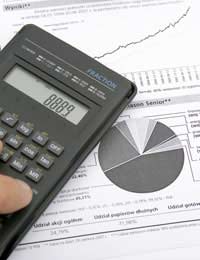How to write a business plan for your Coffee Shop

A business plan is an essential document to complete before you open your new coffee shop. The plan you compile will be a template for your business that will guide you in every aspect of your shop’s operation.
A business plan isn’t just a collection of financial forecast – although these are important – your business plan includes your key goals, marketing strategy and how you intend to operate and expand your coffee shop in the future.
It’s important to start writing your business plan as soon as you can. Business plans often go through many drafts before they are a useful document to help you open and run your coffee shop profitably.
Why Write a Business Plan?
For many first-time entrepreneurs writing a business plan can seem like a waste of time as they believe they know all there is to know about their business. This may be the case, but writing a business plan has a number of advantages that include:- Written financial details of your business will be required if you are seeking support form a bank applying for a grant.
- Business plans give you a document to refer back to when you need more details of how you planned an aspect of your business.
- Making changes to your business plan over time enables you to document your reasons for the change for future reference.
- Your products and services can be clearly defined, and their USP’s (Unique Selling Points) described in detail.
- Contingency plans can be outlined to help your business survive a wide-range of crises.
What To Include in a Business Plan
No two business plans are the same, but they all contain a number of core ingredients that include:Executive summary
This should be a concise yet comprehensive overview of your business idea. This is the first thing that will be read by potential investors, so it’s important that this summary encapsulate your business idea and your plans for its future. This is your chance to set out your business vision.
Description
You can now go into more detail about your business’ goods or services. In this section you should give comprehensive information about your core business activity. If your business is specialised, this is the section to give any background information you think is necessary to get your business idea across to your reader.
Operations and premises
Your business plan should have details of any premises you’ll need. This is especially important if you will be leasing premises, as your reader will want to see you have thought through the complications of commercial leasing. If you have a special need for your business, give details in this section including any brief costs that may be relevant.
Marketing and sales
This section is where you detail how you will reach your business’ customers. What components your marketing strategy consists of and how you intend to lever the USP of your goods and services into a profitable business.
Financial projections
The previous sections of your business plan now need to be supported with hard numbers. These will be projections as you are starting a new business, but try and be as realistic as possible. The three key projections you must provide are cashflow, profit and loss and sales forecasts.
Business Plan Checklist
When you sit down to write your business plan, use this checklist to guide you:1: Clear and concise
Your plan should be written in plain English. If you have to use jargon make sure this is comprehensively defined. Try and put yourself in the shoes of a person that knows nothing about your business. But be careful not to patronise your reader.
2: Presentation
How your business plan looks can have a huge impact on the impression that it gives to its reader. Think about the paper, binding and typeface you are using. You should aim for a professional look that is legible. Beware of over designing your plan as this can make your document look amateurish.
3: Don’t exaggerate
Think about the content you have put into your business plan. Is this a true and accurate reflection of how you intend to set-up and operate your business? If you exaggerate in your plan you will hurt your chances of securing any funding you might need.
4: Help and advice
Before you expose your business plan to a wider audience, it can often be helpful to show your draft plan to a number of professionals you trust. Your accountant for instance, can check your financial projections. But if you have a general business advisor, let them read your plan and offer some constructive criticism.
Business Energy With a Difference
If you are looking for business energy or need advanced solutions like remote energy monitoring, new supplies, downgrading or upgrading capacity, have a no obligation chat with Purely Energy.
To find our more get in touch here. or call 0161 521 3400.




